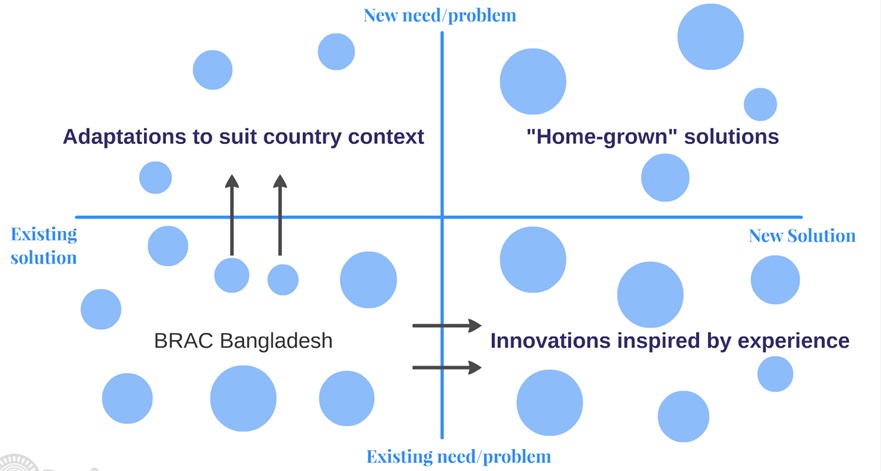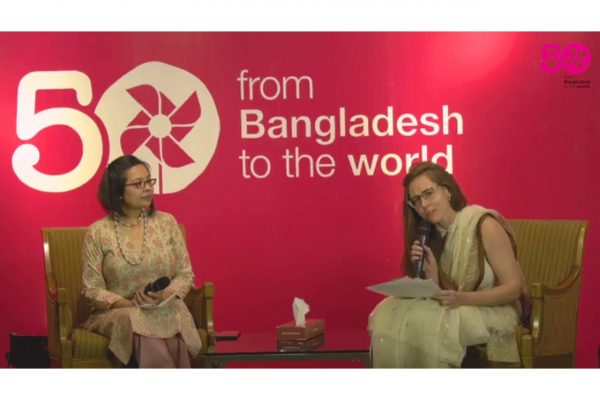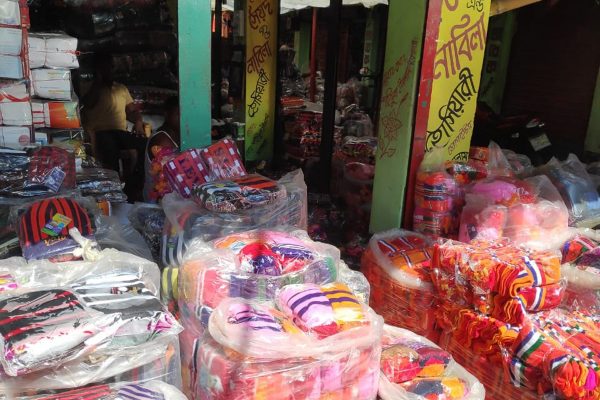Mapping innovation across BRAC International
Reading Time: 2 minutes
What comes to your mind when you think about innovation? Most of us relate innovation to places like Silicon Valley. However, there are incredible social innovations happening in the global South; starting from Sudanese villages to Afghan classrooms and in many other not-so-known places, where you least expect anything related to innovation.
What comes to your mind when you think about innovation? Most of us relate innovation to places like Silicon Valley. However, there are incredible social innovations happening in the global South; starting from Sudanese villages to Afghan classrooms and in many other not-so-known places, where you least expect anything related to innovation.
In last summer, BRAC’s social innovation lab took an initiative to identify social innovations happening across BRAC International, reaching out to Afghanistan, Pakistan, Myanmar, Philippines, Uganda, Tanzania, Sierra Leone, Liberia and South Sudan. Turns out, the global south is buzzing with small innovations that are fairly unknown outside the communities where they are happening.
Take the example of BRAC Afghanistan’s initiative to promote personal hygiene habits among adolescent girls and selling locally produced sanitary napkins in schools. Despite being a sensitive issue in Afghan context, they reached over 2,500 female students and their teachers, setting up distribution centres in schools. Cotton was not available so they had to innovate frugally and using local materials they managed to produce 250,000 napkins.
However, innovation is not confined within replication of proven ideas in a new context and solving problems that come along. In countries like the Philippines, where the living standard is higher compared to most other developing countries, merely taking a proven idea and replicating it does not work. The one-room schoolhouse model of BRAC’s education programme is highly successful and considered adequate in Bangladesh, but in the Philippines, the staff had to redesign the whole school; it had to be made bigger and better to meet the government’s requirement.
Interestingly, there is no lack of home-grown solutions too. In South Sudan, BRAC introduced ox-ploughing in the areas where people traditionally do not use cattle to plough their lands. Having plenty of arable land unused, this simple innovation has a lot of potential in African countries. Another example is the ’khala project’ based in Afghanistan. Many Afghan young girls cannot come to school regularly due to distance and security issues. To increase girls’ attendance in schools, BRAC Afghanistan recruited, oriented and trained 70 women (called khala, meaning ‘aunt’ in Bangla) to pick the girls up and drop them off at a specific place, close to their homes. The simple, but innovative project creates employment, increases girls’ attendance and ensures their safety.
So what can we learn from all these innovations happening in the global South? Unlike more popular notions of innovation as something new and exciting, the most effective social innovations are often more simple, frugal processes. Processes that change and challenge social norms, bring more impact with less resources or simply do something differently utilising untapped resources.
Most importantly, it was found that innovation rarely happens in isolation. Taking lessons from experiences in a different country, making adaptions to a traditional model to suit the local context, or designing a model from scratch- there are numerous ways to innovate. Rather than jumping on the bandwagon of pushing innovation in everyone’s agenda, BRAC’s social innovation lab is exploring and fostering innovation by instilling small changes that can lead to bigger impact.
Anjali Sarker is an officer at BRAC’s social innovation lab.







